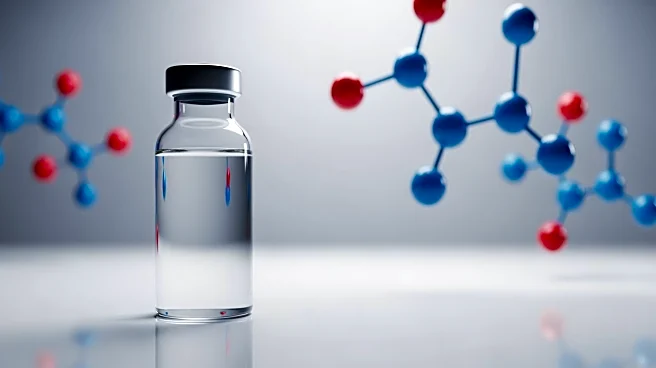What is the story about?
What's Happening?
President Trump has warned against the use of acetaminophen, commonly known as Tylenol, during pregnancy, citing an unproven link to autism. This announcement has been met with swift rejection from health officials worldwide, including the European Medicines Agency and the World Health Organization, who maintain that there is no conclusive evidence supporting this claim. These organizations emphasize that acetaminophen remains safe for use during pregnancy when taken as directed. Trump's statement has sparked concern among global health authorities, who stress the importance of evidence-based guidance and caution against misinformation.
Why It's Important?
The controversy surrounding Trump's claim has significant implications for public health policy and prenatal care. If accepted, it could lead to changes in medication guidelines for pregnant women, potentially affecting millions. The rejection by international health bodies underscores the importance of scientific consensus and the risks of altering medical advice based on unverified claims. This situation highlights the tension between political influence and scientific integrity in health communications.
What's Next?
Health organizations are likely to continue monitoring and responding to public reactions to Trump's statement. Further research may be conducted to definitively address the safety of acetaminophen during pregnancy. Meanwhile, health authorities will likely reinforce existing guidelines and work to prevent misinformation from impacting patient care. The Trump administration's stance may prompt discussions on regulatory oversight and the role of political figures in health advisories.
Beyond the Headlines
The debate over acetaminophen and autism raises broader questions about the intersection of politics and science. It highlights the ethical responsibility of leaders to base health recommendations on solid evidence. The global response reflects a commitment to maintaining trust in scientific research and protecting public health from potentially harmful misinformation.














